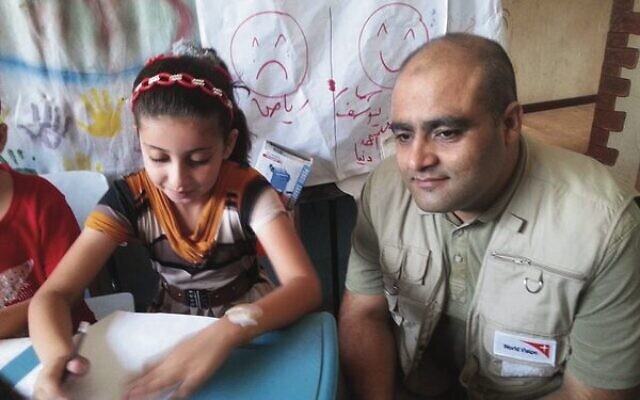Gaza aid worker Mohammed El-Halabi gets 12 years
The trial, and his prolonged detention, have further strained relations between Israel and humanitarian organisations that provide aid to Palestinians.
An Israeli court on Tuesday sentenced Gaza aid worker Mohammed El-Halabi to 12 years in prison after he was found guilty of several terrorism charges in a high-profile case.
The Gaza director for the international charity World Vision was arrested in 2016 and accused of diverting tens of millions of dollars to the Islamic terror group Hamas.
The trial, and his prolonged detention, have further strained relations between Israel and humanitarian organisations that provide aid to Palestinians. The sentence is likely to continue to affect those ties.
El-Halabi’s lawyer reiterated his client’s claim of innocence following Tuesday’s sentencing.
“He says that he is innocent, he did nothing and there is no evidence,” Maher Hanna said. “On the contrary, he proved in the court above any reasonable doubt that he made sure that no money will be (given) directly to Hamas.”
According to Hanna, if El-Halabi had admitted to wrongdoing, he would have been released.
“For his personal values and for the international humanitarian work values, he insisted on the truth, and he cannot admit a thing that he did not do,” the lawyer said.
“It’s inconceivable,” Hanna said of the length of the sentence.
Both El-Halabi and World Vision have denied the allegations and an independent audit in 2017 also found no evidence of support for Hamas.
Australia, which was the biggest single donor to World Vision’s humanitarian work in Gaza, came to similar conclusions in its own review.
World Vision, a US-based Christian charity with almost 40,000 employees globally, said the sentencing was “deeply disappointing” and stood in sharp contrast to the evidence and facts of the case.
“The arrest, six-year trial, unjust verdict, and this sentence are emblematic of actions that hinder humanitarian work in Gaza and the West Bank,” the group said. “It adds to the chilling impact on World Vision and other aid or development groups working to assist Palestinians.”
Its spokesperson Sharon Marshall stressed her objection to “any form of terrorism or activities that support terrorism”, saying they “don’t see any evidence of those things in this case”.
“We fully support Mohammed’s intent to appeal the verdict and the sentence in this case, and we call for a fair and transparent process at the supreme court,” she said in a statement.
Hanna said El-Halabi intended to appeal the verdict and the sentence to the country’s Supreme Court.
The prosecution said it was also considering an appeal, believing the sentence to be too light.
“These are very severe deeds, the defendant funded terror with millions of shekels, helped strengthen the Hamas tunnel network,” Moran Guez of the southern district attorney’s office said.
“We asked for 16-21 years prison. We’ll read the sentencing and consider our actions,” she told reporters.
In response to the ruling, Israel’s Foreign Ministry called the diversion of funds a “reprehensible act committed at the expense of the welfare of the Palestinian residents of Gaza”, and acknowledged both World Vision’s condemnation of terrorism and El-Halabi’s right to appeal.
It added that Israel is committed to working with aid groups such as World Vision “in a manner consistent with security considerations and applicable standards”.
El-Halabi had been convicted of membership in a terrorist group – Hamas – and financing terrorist activities, having “transmitted information to the enemy” as well as the possession of a weapon.
Much of the evidence against him was kept secret, with Israel citing “security concerns”, prompting his legal team to question the verdict’s legitimacy.
In its sentencing, the court said El-Halabi had joined the military wing of Hamas in 2004 and was “planted in World Vision” the following year.
The court said that besides 12 tons of steel and other materials provided to Hamas for its tunnels and positions, El-Halabi also gave the terror group “millions of dollars” of World Vision’s money “to fund terror”.
The 12-year sentence was also meant to deter Gazans working in international aid groups from aiding Hamas, according to the court.
Following El-Halabi’s arrest, the Australian government, a major donor to World Vision, announced it was freezing funding to projects in the Gaza Strip.
A subsequent Australian government probe found no evidence of embezzlement.
Times of Israel, Agencies


comments